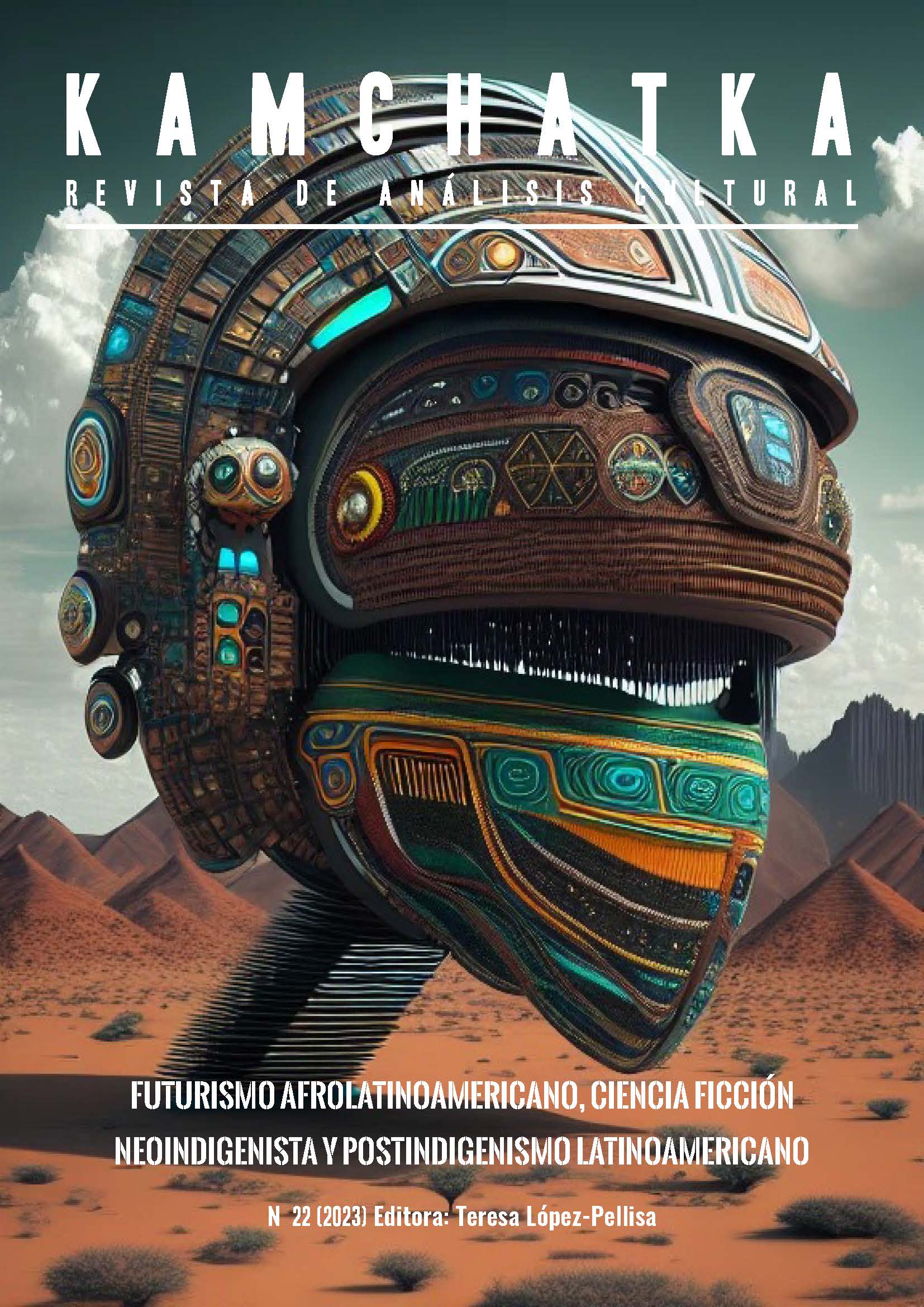Reflective Memories of Multi-Causal Violence in Colombia: Processes of Remembering and Intertextuality in Juan Gabriel Vásquez’s ‘Canciones para el incendio’
DOI:
https://doi.org/10.7203/KAM.22.26166Keywords:
Collective Memory, Canciones para el incendio, Juan Gabriel Vásquez, Intertextuality, Rhetoric of Memory, Types of Violence, Patriarchal Structures Abstract
Abstract
In the collection of short stories ‘Canciones para el incendio’, Juan Gabriel Vásquez stages different memories and specifically uses in the last story the example of the protagonist’s story, which occurred in the first half of the twentieth century, to address the violence against nonconformist women silenced in Colombian cultural memory. First, this study examines how the complex story is narrated, between two distinct dimensions of collective memory, by combining different literary registers of a rhetoric of memory conceived by Astrid Erll. By exposing which narrative mode predominates, the aim is to show the consequences of this on the effect of the narration, especially in relation to collective memory. Its classification as a tale related in reflexive mode encourages reflection on the construction of cultural memory and the recognition of the need for a rewriting with the incorporation of previously forgotten memories and perspectives. In relation to this, the analysis focuses on the role played by intertextuality and its central functions. Finally, it points out how the violence that manifests itself in the narrated world directly and indirectly, according to Johan Galtung’s classification, is based on patriarchal (colonialist) structures, conservative ideologies, and fundamentalist religious discourses.
 Downloads
Downloads
 References
References
Assmann, Aleida (2010). “Canon and archive”. Erll, Astrid et al. (eds.): A companion to cultural memory studies. Berlín: De Gruyter: 97-107.
Assmann, Jan (2011). Historia y mito en el mundo antiguo. Madrid: Gredos.
Erll, Astrid (2012). Memoria colectiva y culturas del recuerdo: estudio introductorio. Bogotá: Universidad de los Andes.
Galtung, Johan (1996). Peace by peaceful means. Londres: SAGE.
González González, Daniuska. “El presente era un peso y un estorbo. Subjetividades de la huerfanía en la narrativa del colombiano Juan Gabriel Vásquez”. Revista chilena de literatura 97 (2018): 153-174.
Hoskins, Andrew (2014). “The mediatization of memory”. Lundby, Knut (ed.): Mediatization of communication. Berlín: De Gruyter: 661-679.
Hutcheon, Linda (1989). “Historiographic Metafiction: Parody and the Intertextuality of History”. O’Donnell, Patrick (Ed.): Intertextuality and Contemporary American Fiction. Baltimore: Johns Hopkins UP: 3-32.
Kirste, Stephan (2021). “Literatur und Recht”. Hilgendorf, Eric y Joerden, Jan (eds.): Handbuch Rechtsphilosophie. Stuttgart: Metzler: 351-362.
Klaus, Elisabeth (2002). „Aufstieg zwischen Nähkränzchen und Männerkloster: Geschlechterkonstruktionen im Journalismus“. Dorer, Johanna y Geiger, Brigitte (eds.): Feministische Kommunikations- und Medienwissenschaft. Wiesbaden: Springer: 170-190.
Lachmann, Renate (2010). “Mnemonic and Intertextual Aspects of Literature”. Erll, Astrid et al. (eds.). A companion to cultural memory studies. Berlín: De Gruyter: 301-310.
Lugones, María. “Colonialidad y Género”. Tabula Rasa 9 (2008): 73-101.
Mariño-López, Pedro Rodrigo. “Las formas de la historia: Narratividad, discurso y metaficción en la forma de las ruinas de Juan Gabriel Vásquez”. Revista iberoamericana 276 (2021): 747-758.
Sainz Borgo, Karina. “Juan Gabriel Vásquez y los hijos de un país incendiado”. Entrevista. Zenda, 20 May 2019: https://www.zendalibros.com/juan-gabriel-vasquez-y-los-hijos-de-un-pais-incendiado/ [Última consulta: 24/02/2023].
Torres Rodríguez, Carlos Gerardo. “Canciones para el incendio by Juan Gabriel Vásquez”. Hispania 103, 3 (2020): 446-448.
Vásquez, Juan Gabriel (2021 [2011]). El ruido de las cosas al caer. Barcelona: Debolsillo.
Vásquez, Juan Gabriel (2015). La forma de las ruinas. Madrid: Alfaguara.
Vásquez, Juan Gabriel (2018). Canciones para el incendio. Madrid: Alfaguara.
Vervaeke, Jasper (2017): “Crónica de una consagración literaria. Juan Gabriel Vásquez y España”. Capote Díaz, Virginia y Esteban, del Campo Ángel (eds.): Escribiendo la nación, habitando España: La narrativa colombiana desde el prisma transatlántico. Madrid: Iberoamericana Vervuert, 149-166.
Downloads
Published
How to Cite
-
Abstract628
-
Artículo PDF (Español)324
Issue
Section
License
This journal provides an immediate free access to the content on the principle that freely make investigation available to the public, which promotes an increased global knowledge exchange.
Unless otherwise indicated, texts published in this journal are under the license Attribution-NonComercial 4.0 by Creative Commons. These texts may be copied, distributed and publicly communicated whenever the publication’s author and title are quoted and whenever they are not used for commercial purposes. In any case, intellectual property of the articles and its potential economic rights entirely belong to its authors.
The full license can be consulted on https://creativecommons.org/licenses/by-nc/4.0/. We encourage authors to disseminate papers published in Kamchatka. Journal of cultural analysis electronically, in institutional digital repository or in their websites.





